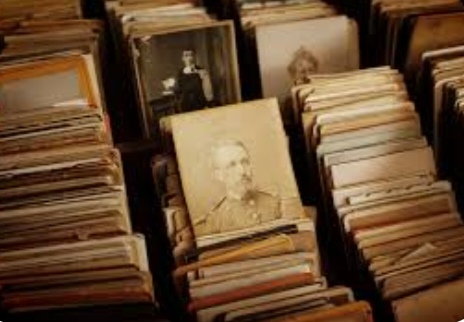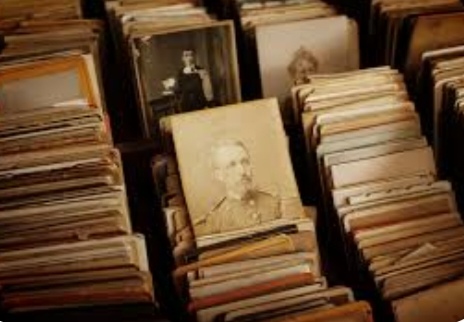Understand the significance of preserving historical sites and artifacts for future generations to learn from.
History is not just a subject to study in school or read about in books – it is a living and breathing entity that surrounds us every day. From ancient civilizations to modern societies, our world is filled with the remnants of the past that tell the stories of those who came before us. It is essential to preserve historical sites and artifacts for future generations so that they can learn from and appreciate the lessons of history.
Preserving historical sites allows us to physically connect with the past in a way that words alone cannot convey. Walking through ancient ruins, exploring centuries-old buildings, or standing in the very spot where history-changing events took place can evoke a sense of awe and wonder that is unparalleled.
Furthermore, historical sites and artifacts are essential for understanding and preserving cultural heritage. Each site and artifact tells a unique story about the people who created it, their beliefs, traditions, and way of life. By preserving these elements of our cultural heritage, we can ensure that future generations have the opportunity to learn about and appreciate the diversity and richness of human history. This, in turn, fosters a sense of connection to our past and helps to shape our collective identity as a society.
Preserving historical sites and artifacts also plays a crucial role in educating future generations about the mistakes and triumphs of the past. By learning about the events and decisions that shaped our world, we can gain valuable insights into how societies function and evolve. Understanding the lessons of history can help us to make better decisions in the present and build a brighter future for ourselves and those who come after us.
By investing in the preservation of these sites, communities canIn conclusion, the significance of preserving historical sites and artifacts for future generations cannot be overstated. These tangible remnants of the past serve as powerful tools for connecting with our history, preserving our cultural heritage, educating ourselves and others, and promoting economic development. By safeguarding these valuable resources, we can ensure that the lessons of the past are not lost to time and that future generations have the opportunity to learn from and appreciate the richness of human history. Let us continue to cherish and protect our historical sites and artifacts for the benefit of all who come after us.
Explore the various methods historians use to uncover and interpret historical events and artifacts.
Historians employ a variety of methods to uncover and interpret historical events and artifacts, providing invaluable insights into the past. One of the primary methods used by historians is research. This involves delving into archives, libraries, and other sources to collect information about a particular historical event or period. Through careful examination of primary sources, such as letters, diaries, and official documents, historians can piece together a comprehensive picture of the past.
Another important method used by historians is archaeological excavation. By digging into the earth, archaeologists uncover physical artifacts that provide clues about past civilizations. These artifacts can range from pottery shards and tools to entire buildings and monuments. By carefully analyzing these artifacts, historians can glean valuable information about the daily lives, beliefs, and cultures of people who lived in the past.
In addition to researching primary and secondary sources, historians often use oral history interviews to gather information about past events. By speaking with individuals who have direct knowledge of a particular historical event, historians can gain unique perspectives and insights that may not be found in written sources. Oral history interviews are particularly valuable for capturing the voices and experiences of marginalized or underrepresented groups.
Technology has also revolutionized the field of history, providing historians with new tools and methods for uncovering and interpreting the past. For example, digital archives and databases allow historians to access a wealth of historical materials from anywhere in the world. Through digitization, rare documents and artifacts can be preserved and made accessible to a wider audience.</p> <p> </p> <p>Moreover, advancements in technology have enabled historians to use cutting-edge techniques, such as DNA analysis and remote sensing, to uncover hidden secrets of the past. By analyzing ancient DNA, historians can trace migrations, identify kinship patterns, and shed light on historical populations. Remote sensing technologies, such as LiDAR (Light Detection and Ranging), allow historians to map archaeological sites from above, revealing hidden structures and landscapes that are not visible to the naked eye.</p> <p> </p> <p>In conclusion, historians use a variety of methods to uncover and interpret historical events and artifacts, each offering unique insights into the past. By conducting research, excavating artifacts, consulting primary and secondary sources, conducting oral history interviews, and harnessing the power of technology, historians continue to push the boundaries of our understanding of history.
Moreover, studying history also helps us to develop critical thinking and analytical skills. By examining primary sources, analyzing historical documents, and evaluating different perspectives, we learn how to think critically about the past and present. This ability to weigh evidence, consider multiple viewpoints, and make informed judgments is invaluable in a world where information is constantly being presented to us from a multitude of sources.
History also has the power to challenge our assumptions and beliefs, forcing us to confront uncomfortable truths and grapple with difficult questions. By studying the past, we are able to see how societies have grappled with issues such as inequality, discrimination, and conflict, and how these issues continue to shape our world today. History allows us to see the complexities and nuances of human behavior, and helps us to understand the motivations and choices that have led to both progress and setbacks throughout history.
Furthermore, studying history can also inspire us to reflect on our own values, beliefs, and actions. By examining the lives and struggles of people who came before us, we are able to gain insights into the human experience and draw lessons that can inform our own lives. History is full of stories of courage, resilience, and innovation, and by learning about these stories, we can be inspired to take action and make a positive impact on the world around us.
In conclusion, studying history is essential for shaping our understanding of the world today. It provides us with context, perspective, and critical thinking skills, while also challenging our assumptions and inspiring us to reflect on our own values and actions. History is a powerful tool that allows us to make sense of the past and present, and to learn from the mistakes and triumphs of those who have gone before us. By exploring the fascinating world of history, we can gain a deeper appreciation for the complexities of human civilization and the enduring impact it has on our lives.






